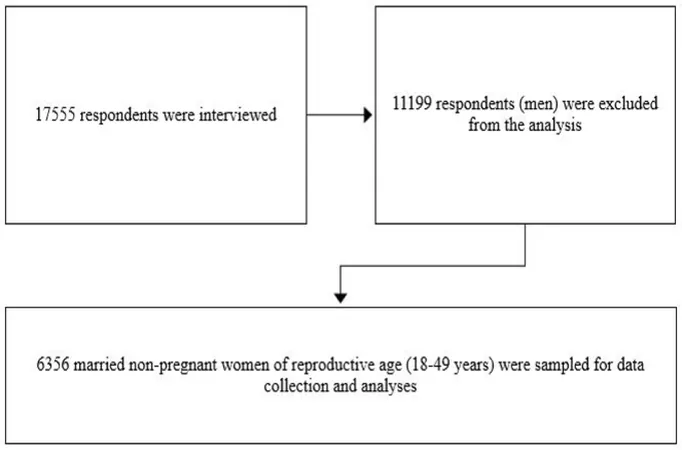
Dramatic Differences in Contraceptive Use Among Married Women in Hubei, China: What You Need to Know
2025-08-19
Author: Nur
Unveiling Hubei's Contraceptive Landscape
A groundbreaking study from Hubei Province, China, delves deep into the modern contraceptive practices of married women of reproductive age. Conducted by the Tongji Medical College, this extensive research highlights the sharp contrasts between urban and rural areas, a phenomenon that could reshape family planning strategies nationwide.
A Closer Look at the Study Design
Spanning from 2014 to 2016, this comprehensive cross-sectional study surveyed over 17,500 individuals, ultimately focusing on 6,356 married women aged 18 to 49. Utilizing advanced sampling techniques, researchers positioned Hubei as a focal point due to its diverse demographic landscape, which encompasses significant rural populations.
Key Findings: Contraceptive Use by Residence
Shocking results reveal that modern contraceptive usage is remarkably similar across both rural (88.5%) and urban (87.1%) married women. But don't be fooled—this masks deeper issues regarding accessibility and education. Women in urban settings reported higher levels of contraceptive knowledge and spousal involvement compared to their rural counterparts.
Education Levels Matter!
The gap in educational achievement is striking. While a substantial 57% of rural women completed secondary education, a significant number of urban women achieved college or university degrees. This disparity has a direct correlation with contraceptive use, as urban women with higher education tend to make informed reproductive decisions.
Barriers to Contraception: A Closer Survey
Despite a high level of awareness about contraceptive options, about 12% of women in both settings reported not using any form. A staggering three-quarters of these women cited no specific reasons for their choices, indicating potential gaps in education or access.
The Role of Men in Family Planning
Surprisingly, the study found a strong sentiment among women that family planning should be a shared responsibility between partners. A notable 81.2% of women in urban settings and 82.3% in rural regions advocated for male involvement, underscoring a progressive shift in attitudes.
Understanding Contraceptive Knowledge
The study revealed a concerning lack of knowledge surrounding male contraceptives, with only 0.8% of urban and 1.7% of rural women aware of vasectomy. However, both groups recognized condoms as the most familiar method, highlighting the need for improved education in this area.
Diving Into the Determinants of Contraceptive Use
The research identified several determinants influencing contraceptive use. Younger age, the number of children, and spousal attitudes towards contraception significantly impacted usage rates. Urban women whose partners engaged in family planning discussions showed a notable increase in contraceptive usage.
Cultural Shifts and Policy Changes at Play
China's evolving family planning policies, notably towards a more relaxed stance post-one-child policy, have undoubtedly altered reproductive behaviors. This generational change reflects broader sociocultural trends that are reshaping family structures and contraceptive decisions.
What Lies Ahead?
The study calls for renewed efforts to amplify contraceptive education, particularly in rural areas, where access remains limited. The findings present an urgent need for tailored interventions to address disparities and support the reproductive health of women throughout China.
Conclusion: A Wake-Up Call for Family Planning in China
As China grapples with the nuances of urban-rural differences in contraceptive use, the findings from Hubei serve as a crucial reminder of the importance of education, accessibility, and shared responsibility in reproductive health. The path forward requires comprehensive strategies to empower women and engage men in family planning, ensuring a healthier future for all.



 Brasil (PT)
Brasil (PT)
 Canada (EN)
Canada (EN)
 Chile (ES)
Chile (ES)
 Česko (CS)
Česko (CS)
 대한민국 (KO)
대한민국 (KO)
 España (ES)
España (ES)
 France (FR)
France (FR)
 Hong Kong (EN)
Hong Kong (EN)
 Italia (IT)
Italia (IT)
 日本 (JA)
日本 (JA)
 Magyarország (HU)
Magyarország (HU)
 Norge (NO)
Norge (NO)
 Polska (PL)
Polska (PL)
 Schweiz (DE)
Schweiz (DE)
 Singapore (EN)
Singapore (EN)
 Sverige (SV)
Sverige (SV)
 Suomi (FI)
Suomi (FI)
 Türkiye (TR)
Türkiye (TR)
 الإمارات العربية المتحدة (AR)
الإمارات العربية المتحدة (AR)